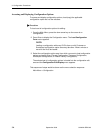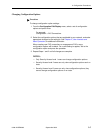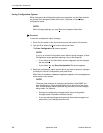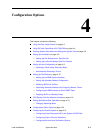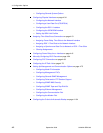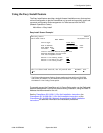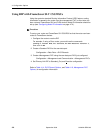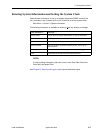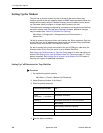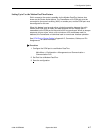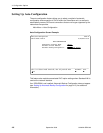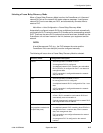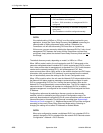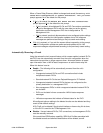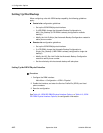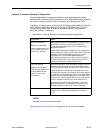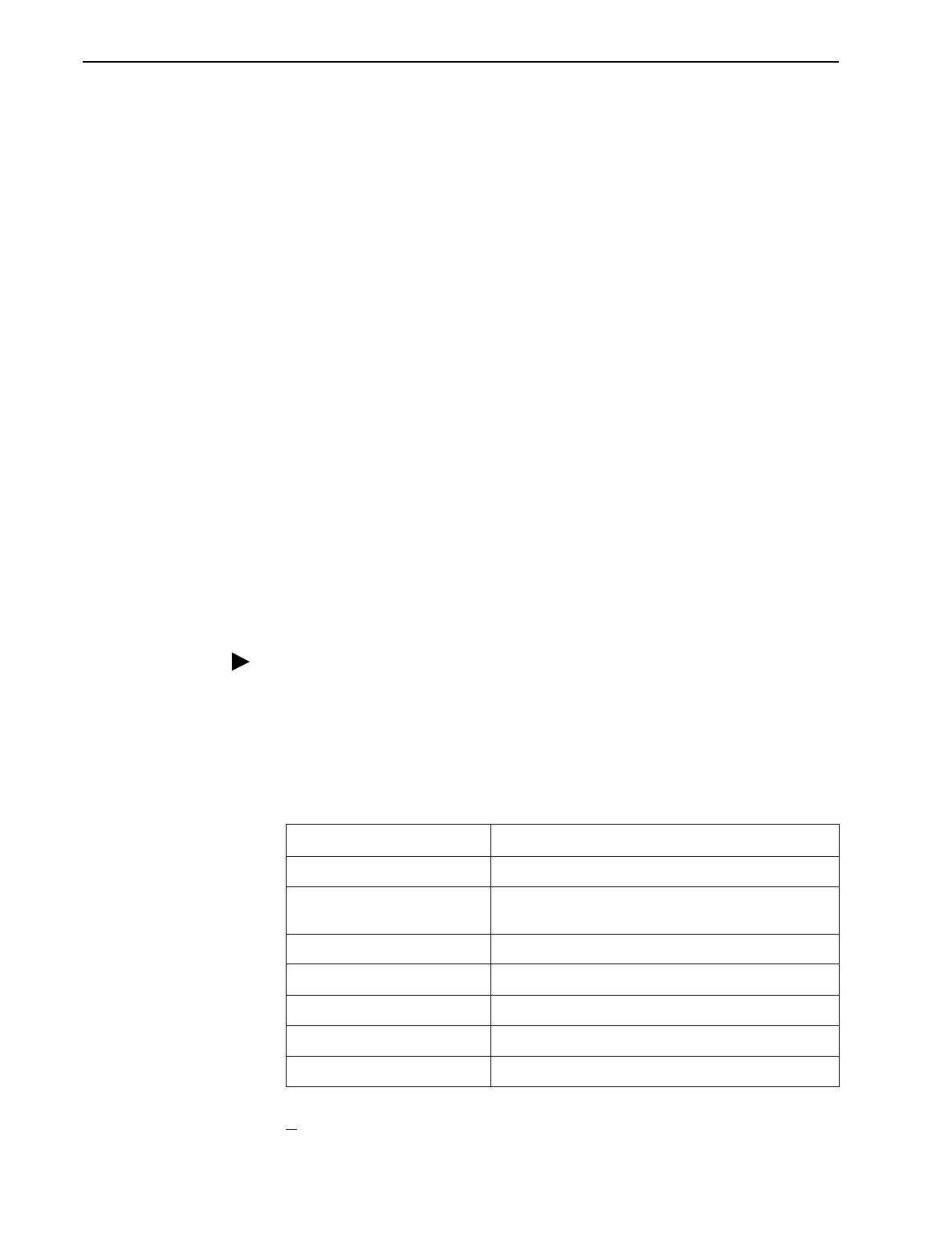
4. Configuration Options
4-6
September 2002 9128-A2-GB20-80
Setting Up the Modem
The unit has an internal modem for dial-in access to the menu-driven user
interface, as well as dial-out capability when an SNMP trap is generated. When the
modem will be used to dial out, Modem Directory phone numbers need to be set
up. Otherwise, simply configure or change dial-in access to the unit.
The modem port is already configured for connection to an asynchronous terminal
and dial-in access, with Port Use set to Terminal. However, additional changes
may be needed (see Table 4-25, Modem Port Options).
Main Menu
→
Configuration
→
Management and Communication
→
Modem Port
For dial-in access to the menu-driven user interface via Telnet, make sure Port Use
is set to Net Link, the IP address and subnet mask are entered if they are different
from the node’s, and that the Link Protocol is correct.
For dial-in access to the router connected to the unit’s COM port, make sure the
Communication Port’s Port Use option is set to Modem PassThru.
See
Setting Up Call Directories for Trap Dial-Out
on page 4-6
,
when trap dial-out is
desired. See
Setting Up to Use the Modem PassThru Feature
on page 4-7, if this
feature is desired. See
Limiting Dial-In Access via the Modem Port
in Chapter 6,
Security and Logins
, for additional information.
Setting Up Call Directories for Trap Dial-Out
Procedure
1. Set up directory phone numbers.
Main Menu
→
Control
→
Modem Call Directories
2. Select Directory Number A (for Alarm).
3. Enter the phone number(s).
4. S
ave the phone number(s).
Valid characters include . . . For . . .
ASCII text Entering the phone number.
Space,
underscore ( _), and dash (–)
Readability characters.
Comma (,) Readability character for a 2-second pause.
B Blind dialing.
P Pulse dialing, unless B is specified.
T Tone dialing, unless B is specified.
W Wait for dial tone.



